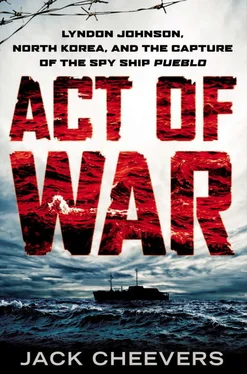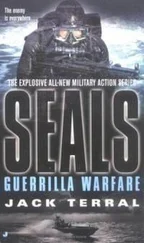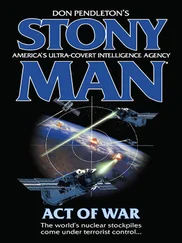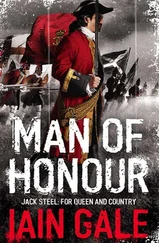The captain had given Law more navigation watches after the near-miss with the reef, and that delighted the quartermaster. He loved the Navy and was proud to the point of cockiness of his talents as a course plotter. He also was grateful to Bucher for qualifying him as an officer of the deck, meaning Law could steer the ship on his own, a rare and exalted station for an enlisted man.
A tenth-grade dropout, the barrel-chested quartermaster had spent his adolescence in Tacoma, Washington, a blue-collar city permeated by the stench from surrounding mills that sawed and pulped the rich forests of the Olympic Peninsula into wood and paper products. His parents split up when he was four, and his no-nonsense mother raised him with money she made running a tiny greasy spoon. Law tried to enlist at 15, lying about his age and telling the recruiter the timeworn fable that his birth certificate had been destroyed in a fire at the county hospital. But his mother refused to sign the papers. The day he turned 17, he enlisted on his own.
He worked mostly as a deck ape, chipping paint and mopping decks aboard a Navy tug, an oil tanker, and a supply ship based in Japan. He was a brash kid, a smart-ass, but he learned fast. Somewhere along the line, a senior quartermaster took Law under his wing and taught him the fine points of shooting stars and fixing a ship’s position.
Law’s prowess with the sextant and pelorus made him someone aboard ship. He had exceptional vision, 20/13 in one eye, 20/14 in the other. He often competed with Bucher, himself an excellent navigator, to spot the first evening star, and Law usually won. He liked that officers depended on him, made important decisions based on his calculations. They simply took his word for where they were. “And I always knew where we were at,” he said in an interview many years later, his pride still evident. “It was the only thing I was really that good at in my life.”
In the eyes of many younger sailors, Law, at 26, was a respected old salt. He didn’t need chevrons on his sleeves to establish his authority; he was one of those men whose presence is more imposing than his rank. “He was a sailor first and foremost and made no bones about it,” said a shipmate. “I don’t recall anyone ever telling him a lifer joke.”
Law helped guide the Pueblo into the Tsushima Strait, where the imperial Japanese navy had crushed the Russian tsar’s fleet in a historic 1905 duel. Bucher intended to hug the Kyushu coast as long as possible, hiding among Japanese fishing boats and hoping Soviet naval units didn’t spot him. Then he’d angle north-by-northwest for the six-hundred-mile run across the Sea of Japan.
At first, the Pueblo encountered only moderate swells. But by nightfall, with land no longer in sight, the freezing Siberian wind grew stronger and snow flecked the air. It was so cold in the forward berths that one sailor crawled into bed wearing two shirts, two pairs of socks, pants, a work jacket, and a wool cap. Another rough winter storm was at hand.
The seas butting the bow head-on became so heavy that Bucher had to tack back and forth, as if he were beating upwind in a nineteenth-century schooner. Even on this zigzag course, the Pueblo rolled as badly as it had on the way to Sasebo. Seasickness again erupted among the crew, especially the greener CTs. A particularly steep pitch sent one of them clattering in his chair right out the door of the SOD hut.
Gradually the energy went out of the storm. The captain held drills on the machine guns, checking how long it took to uncover, load, and fire them. The shortest time was ten minutes, the longest more than an hour. The guns were difficult to aim and jammed frequently. Sailors heaved 50-gallon drums over the side and tried to hole them. Even at less than fifty yards, they often missed.
By January 13, the ship lay opposite Wonsan, the biggest and most heavily defended port on North Korea’s east coast. Bucher still was maintaining strict electronic silence. The Pueblo had dropped out of the Navy’s movement reporting system, so no one on Admiral Johnson’s staff knew exactly where it was. Bucher kept sailing north, paralleling the coast thirty to forty miles out to sea. At night, the spy boat cruised with its running lights doused.
So far the North Koreans hadn’t reacted, and the sailors settled into a daily rhythm. Breakfast was served at six a.m., lunch at eleven, and supper at five p.m. The food was plentiful but nothing to write home about. The chief cook, Harry Lewis, was pretty good, but the minuscule galley cramped his style. Movies were shown twice a day in the wardroom or crew’s mess. Among the available titles were Twelve Angry Men , The Desperate Hours , In Like Flint , and several romantic comedies.
A poker game went on day and night in the forward berth area, new players taking the place of those who had to go on watch. Unable to shake his seasickness, Tim Harris stayed in his bunk most of the time. Before dawn one morning, a sailor delivering a weather report found Bucher in the wardroom wearing a T-shirt, khaki pants, sneakers, and sunglasses. The old man never seemed to sleep.
The sharpest break in the routine came one day when Schumacher accidentally threw the ship into a 40-degree roll.
Bucher had decided that the Pueblo was too close to shore and told Schumacher to change course and get some sea room. It was lunchtime and belowdecks the cooks were serving spaghetti from big tubs.
Schumacher ordered left full rudder and immediately realized the ocean was rougher than he’d thought. “Stand by for heavy rolls!” he yelled into the voice tube. Halfway through the turn the ship stopped. It wouldn’t go any farther. Heavy seas struck it broadside, pushing it far over.
Spaghetti flew everywhere. In the wardroom, Ensign Harris toppled over in his chair and slid on his side right out the door. The captain’s books and Playboy magazines shot out of his stateroom into a passageway.
“What the hell’s going on up there, Skip?” Bucher shouted over the intercom.
“Trying to come around, Captain,” the stricken lieutenant replied. “It’s a little worse up here than I thought.”
“You realize you just cost us our lunch?”
“Yes, sir.”
Ten minutes later, Bucher joined Schumacher on the bridge and calmly explained how such turns should be executed. The crew wound up eating cold cuts and broken potato chips. Unwilling to face their wrath, Schumacher retreated to his cabin with a bag of peanuts.
———
On January 16, the Pueblo reached its first objective: the port of Chongjin, just south of the Soviet border. Bucher stopped about 15 miles offshore. The world seemed drained of color: The sky was a gray smear, the sea a vast sheet of hammered lead. In the distance rose black mountains, summits daubed white. Peering through the “big eyes,” twenty-two-inch binoculars mounted on the flying bridge, the captain and Schumacher could see smoke curling out of factory chimneys. They also saw North Korean torpedo boats patrolling the mouth of the nearby Tumen River.
In the SOD hut, the CTs straightened up and got to work. After weeks and in some cases months of idleness and menial tasks, they were excited about finally performing the top secret specialties they’d trained for. But their equipment picked up little military traffic. Only a few freighters and fishing boats ventured out of Chongjin in the frigid winter weather.
Its topsides coated with snow and ice, the Pueblo began to resemble a ghost ship. The growing weight made the captain uneasy. He calculated that his vessel could flip upside down with as little as four inches of ice on its superstructure and exposed decks. He ordered a work detail onto the main deck with steam hoses, but the melted ice refroze before it spilled over the sides. The men then attacked with scrapers, wooden mallets, and shovels.
Читать дальше












